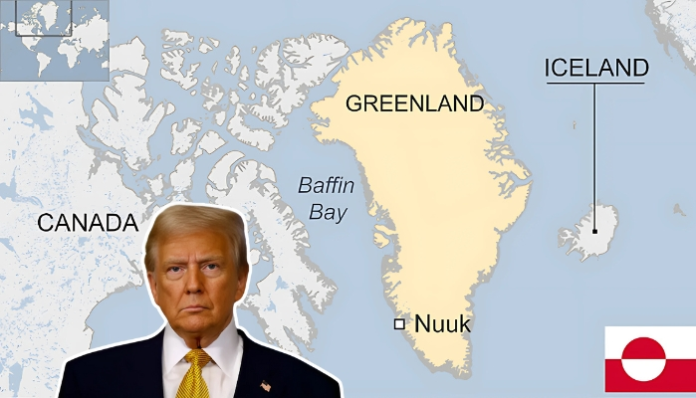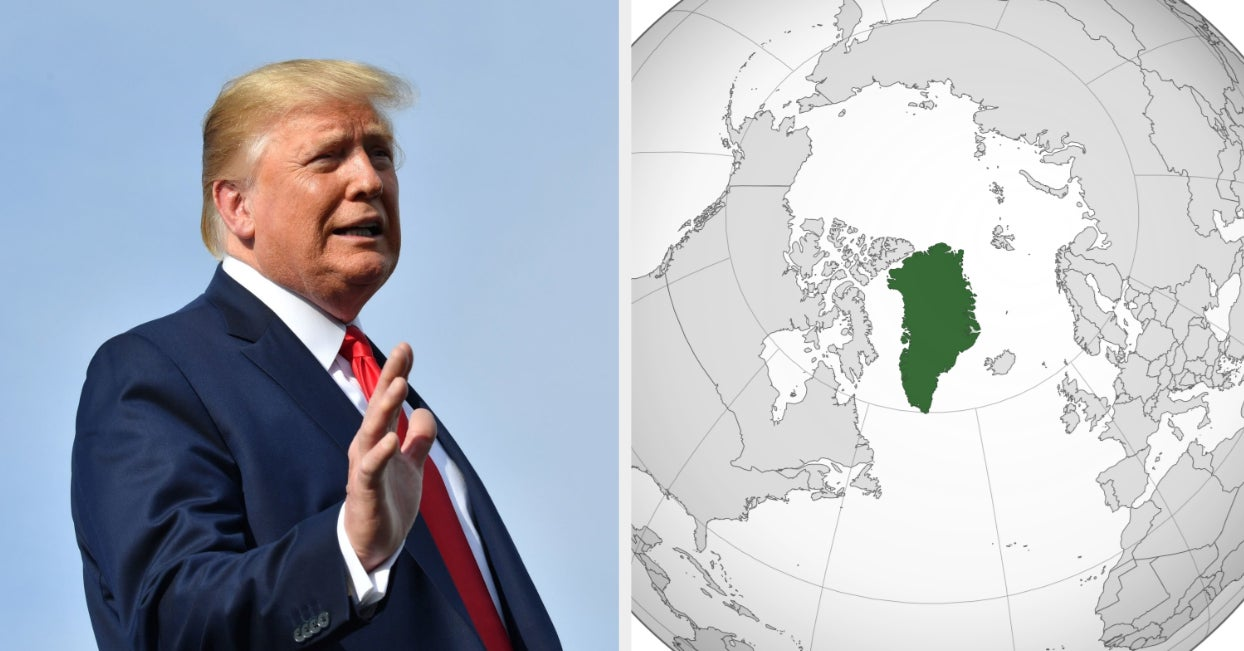Former President Donald Trump has once again sparked controversy with his recent remarks about the United States acquiring Greenland, reiterating that such a move is an “absolute necessity.”
This statement, delivered via his social media platform Truth Social, comes as he announced Ken Howery, a tech investor and former ambassador, as his nominee for ambassador to Denmark.
This isn’t the first time Trump has floated the idea, which he previously described as strategically advantageous. His latest comments have reignited debates surrounding U.S. territorial ambitions, Greenland’s sovereignty, and international relations.
Donald Trump’s Renewed Greenland Ambitions
In his Truth Social post, Trump framed the acquisition of Greenland as a critical step for national security and global freedom. “For purposes of National Security and Freedom throughout the World, the United States of America feels that the ownership and control of Greenland is an absolute necessity,” he declared.
This renewed interest echoes his earlier remarks in 2019 when he suggested purchasing Greenland from Denmark. At the time, Trump described the idea as “strategically interesting” but downplayed its urgency, saying it wasn’t a top priority.
Read : Only Two Genders: Donald Trump Pledges to Stop Transgender Lunacy on Taking Office
However, the suggestion was met with strong resistance from Danish officials, including then-Prime Minister Mette Frederiksen, who dismissed the proposal as “absurd.” Frederiksen emphasized Greenland’s sovereignty, stating, “Greenland is not Danish. Greenland is Greenlandic.”
President-elect Trump calls for the purchase of Greenland:
— The American Conservative (@amconmag) December 23, 2024
"For purposes of national security and freedom, the US feels that the ownership of Greenland is a necessity." pic.twitter.com/KOHox5N0XT
Despite the backlash, Trump’s interest in Greenland persisted. Reports from his first term revealed that he had even discussed the possibility of trading Puerto Rico for Greenland, a proposal that further fueled international criticism and skepticism about his intentions.
Greenland’s Strategic Importance
Greenland, an autonomous territory under the Kingdom of Denmark, is strategically located in the Arctic. Its vast natural resources and geopolitical position make it a coveted region in global politics.
With the Arctic’s significance growing due to melting ice caps and emerging shipping routes, Greenland’s role in military and economic strategies has become increasingly pronounced.
For the U.S., controlling Greenland could provide numerous advantages, including military presence, access to critical minerals, and a stronger foothold in Arctic geopolitics. Thule Air Base, a U.S. military installation in Greenland, already underscores its strategic importance.

However, Greenland’s residents and leaders have consistently rejected the notion of a U.S. takeover. The island’s population of approximately 56,000 people values its autonomy and cultural identity. Any discussions about ownership or control inevitably raise concerns about sovereignty and self-determination.
Trump’s Comments on the Panama Canal
In addition to his remarks about Greenland, Trump also made waves with his comments on the Panama Canal. Expressing frustration with the fees charged for using the canal, Trump suggested that the U.S. should reclaim oversight if current policies remain unchanged.
“The fees being charged by Panama are ridiculous,” Trump wrote on Truth Social. He criticized Panama for what he described as a “complete rip-off” and declared that such practices would end if he were re-elected. At a Turning Point USA event, Trump elaborated, saying that Panama had failed to uphold the moral and legal principles of the agreement under which the canal was handed over.
Panama’s President José Raúl Mulino responded firmly, rejecting Trump’s assertions. In a video statement, Mulino asserted, “Every square meter of the Panama Canal and its adjacent zone belongs to Panama, and will continue to do so. The sovereignty and independence of our country are not negotiable.”
Implications for U.S. Foreign Policy
Trump’s remarks on Greenland and the Panama Canal highlight his bold and often controversial approach to foreign policy. Advocating for the acquisition of Greenland and the reclamation of the Panama Canal reflects a broader vision of reasserting U.S. dominance on the global stage. However, such rhetoric risks straining relationships with key allies and partners.
In Denmark’s case, Trump’s Greenland proposal in 2019 led to a diplomatic fallout, including the cancellation of a state visit. Frederiksen’s strong rejection of the idea underscored the Danish government’s commitment to Greenland’s sovereignty. Reviving this proposal could further complicate U.S.-Denmark relations.

Similarly, Trump’s comments about the Panama Canal challenge the U.S.-Panama relationship. While the canal remains vital for global trade, Panama has been unequivocal about its sovereignty. Reopening debates about U.S. control could lead to heightened tensions and undermine decades of bilateral cooperation.
In both cases, Trump’s approach raises questions about the balance between national interests and international norms. While his supporters may view these proposals as bold and visionary, critics argue that they disregard the principles of sovereignty and self-determination.
Donald Trump’s statements about acquiring Greenland and reclaiming oversight of the Panama Canal reflect his unconventional and often polarizing vision for U.S. foreign policy. By framing these moves as essential for national security and global freedom, he seeks to position the U.S. as a dominant force in geopolitics.
However, the strong reactions from Denmark, Greenland, and Panama underscore the challenges of pursuing such ambitions in a world that increasingly values sovereignty and mutual respect.
As Trump continues to assert his views, the implications for international relations remain uncertain. What is clear, however, is that his comments have reignited debates about the limits of U.S. influence and the role of diplomacy in achieving strategic goals.

